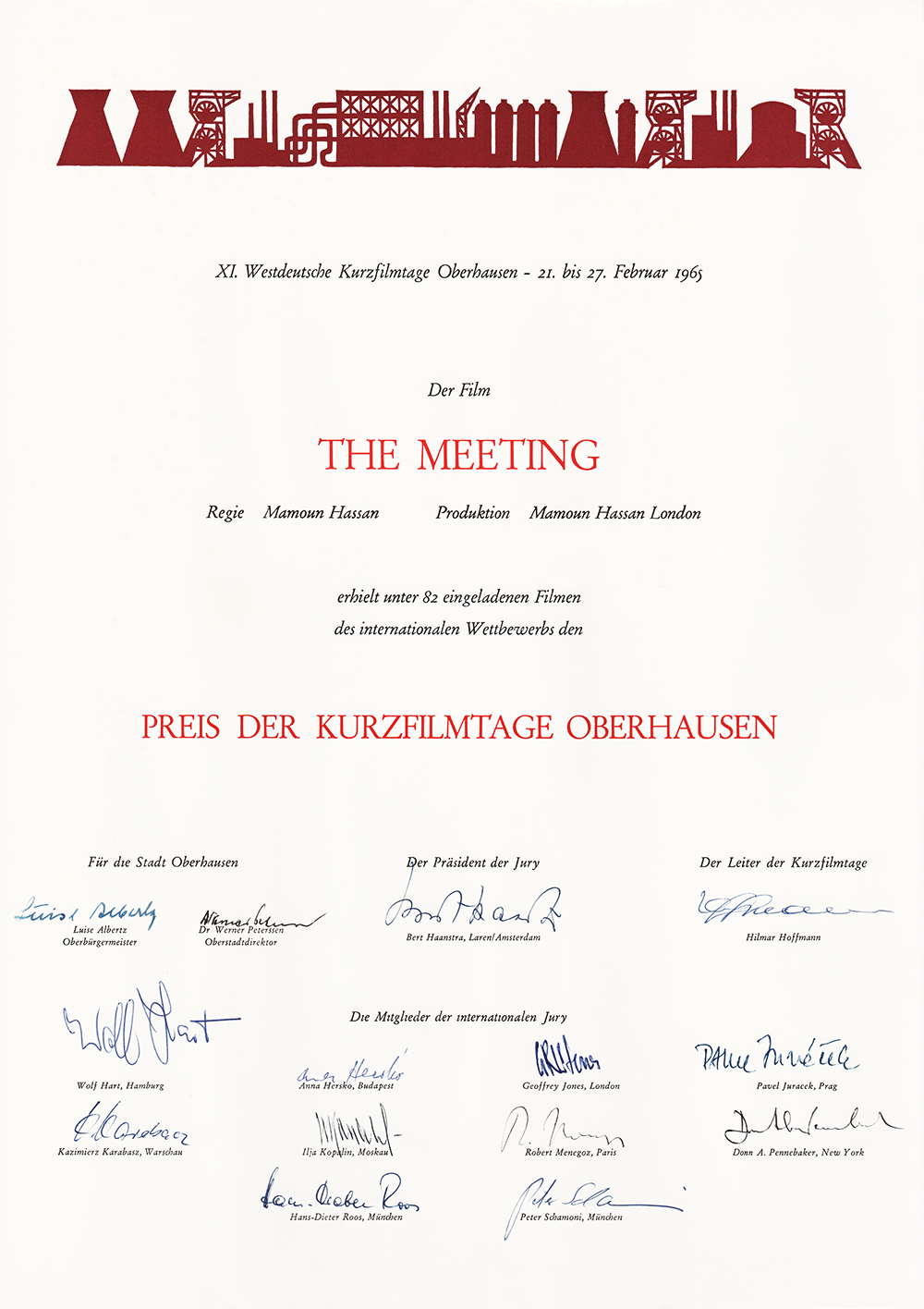 Mamoun was discussing the early steps of working in cinema with a young colleague and she asked him how he started in the industry.
Mamoun was discussing the early steps of working in cinema with a young colleague and she asked him how he started in the industry.
Mamoun realised that he had never spoken about his first completed work: The Meeting, made in 1964.
As Mamoun’s first experiments in directing and writing were very dialogue heavy, he felt that he should try to create a piece that had no dialogue at all – as an exercise. The exercise became something else.
The finished film went to Oberhausen in 1965 where it was well received and won a prize. It was reviewed at length in Cahiers du Cinema and as part of the review of the Oberhausen festival in Positif. Both publications are recognised as the two most important film journals in France.
United Artists distributed the film in in Europe as a short feature.
Cast and Crew
Peter Suschitzky has become a renowned International cinematographer.
Dave King became an illustrious documentary and fiction senior editor at the BBC.
Cleo Boman is a Swedish actor who has worked in theatre and film and is now a director with the Mittiprickteatern, one of the oldest free theatres in Sweden.
John Stokes decided against joining the British film industry, to our considerable loss, and has worked as an artist/designer and also as a theatre designer and actor at the Maddermarket Theatre in Norwich. I thank him for traveling on a train in handcuffs (which we had to return to the local police station which had lent them to us).
One of Mamoun’s hands is also in the film….
Revue
The extract revue by Bernard Cohn in Positif No. 70 from the Oberhausen Film Festival 1965 (Le Tour Du Monde en 144 heures) is translated here:
The Meeting by Mamoun Hassan is one of the most beautiful films of this festival. It’s subject – in a deserted railway station a woman is waiting. She is anxious and her anxiety increases as time passes. An express train rushing through the station at top speed adds to her state of anxiety. A few minutes later a small suburban train slowly comes to a halt. The woman runs towards a carriage door at which a man has appeared. A series of wonderful linked mixes shows them embracing. Suddenly, we see that the man is in handcuffs. He is pulled back roughly by a hand from the corridor. The train whistles and starts to move away, then disappears round a bend in the track. The woman remains alone on the platform and then leaves, back towards the town, where she disappears.
Mamoun Hassan has succeeded in creating a world in which the feelings of solitude and sadness – but also of joy and love – become tangible. Hassan has filmed these grey, sad, tragic settings, these lost characters, with astonishing sensitivity and rigour.
